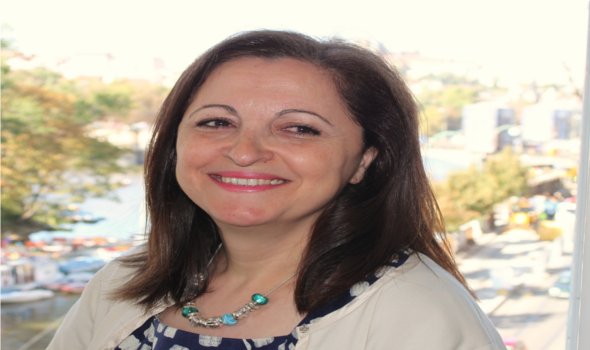Nazek Ramadan: Immigration is not about numbers, it is about people
Nazek Ramadan: Immigration is not about numbers, it is about people

With the release of the latest migration figures today from the Office for National Statistics it seems that the Government will not be able to achieve its planned net migration target. As a migrant I am concerned about the use of the concept of net migration. The discourse about the net migration target reduces people to numbers and statistics which can be reduced or increased based on perceptions and anxieties rather than reality or evidence of what is fair, good or needed for the UK. The net migration policy is based on a problematic ideology which was not developed to address specific needs or benefits for the country and its citizens, but rather is an attempt to alleviate and exploit a misplaced fear. The thinking behind the net migration target overlooks the real impact and benefits of migration and conveniently uses migration to disguise other policies’ shortfalls. Many migrants are increasingly aware of this. The fact that there is no let-up in raising migration as an issue in the race for political gains and votes means many continue to feel at unease and their efforts to belong are hampered. The debate on migration and the way this issue is being continuously ‘dressed and undressed’ to fit the political climate is not new. I have lived in the UK for over 28 years, and I have watched and monitored the way the debate on migration evolved, transformed and changed: from migrants ‘taking our jobs’ to ‘taking our benefits and homes’ to ‘refusing to learn English’ and ‘not fitting into the British identity’, etc. The drive to reduce net migration for many migrants feels like yet another message that we are a burden. It has also led to the development of a number of flawed policies. Most recently the ‘Go Home’ van campaign was an unpleasant and uncomfortable experience which many migrants associated with the development of an unwelcoming culture. Migrants do feel targeted by such campaigns and negative political discourse even if we are told this was not the intention. Many of us have experienced reactions by members of the public who felt empowered and encouraged by such campaigns to take a negative action towards someone who looks like what they imagine a migrant to look like. One of our main concerns is how government language on migration is interpreted by fellow citizens in their interactions with migrants. I have personally experienced some of those interpretations during the many years I have lived in the UK (which are more than the years I have lived in my country of birth). I have been refused a drink in a pub, spat at in the park, verbally insulted on the train, had dogs set on me. All these and similar actions against me are taken by people who never knew me. Of course this has not been my only experience and I have many wonderful friendships here, but these experiences have affected me. Many members of Migrant Voice have had similar experiences which they link directly to the way migration is discussed. One member, overwhelmed by her experience of hostility, asked us: “How can they hate us so much when they don’t even know us?” While evidence clearly refers to the benefits of migration, and attributes the real issues and concerns for citizens to the lack of investment in the country’s infrastructure (including housing, education, health), politicians persist in their portrayal of migration as causing nearly all problems in the UK and see the solution in its reduction. The debate on migration in the UK takes place largely within the media, yet migrants themselves are all too often subject to a ‘code of silence’ and their voices ignored by politicians or those with an axe to grind. The fact that migrants are hugely underrepresented in the UK media (see our research ‘Migrants invisible in the UK media’) does not provide a basis for a fair debate. Perhaps it’s time to stop looking at the numbers and start listening. It’s time to engage with migrants – hear their stories and experiences of their everyday lives in the UK, their contributions, their ambitions and their ideas for the future. We need to be addressing the real issues directly and move away from the now ‘broken record’ on migration and see and acknowledge migration’s value and contribution. We also need to ensure that the UK, with its history and international standing, is a leading country with a modern vision and fair and progressive policies on migration. Migration is not a one-way street; millions of Britons benefit from it: 5 million BRITISH emigrants live abroad, and many more will be temporary migrants in the course of their lives. Migration is a global phenomenon. We need to offer viable legal routes to those fleeing war, persecution and poverty or those coming to work, study, or simply following their hearts. New thinking and a new approach to the movement of individuals around the world is needed, and the UK is well placed to lead on this. A country which prides itself on fairness and which wishes to compete on the international stage cannot close in on itself. It is time to look again. By Nazek Ramadan Executive Director Migrant Voice http://www.migrantvoice.org/


